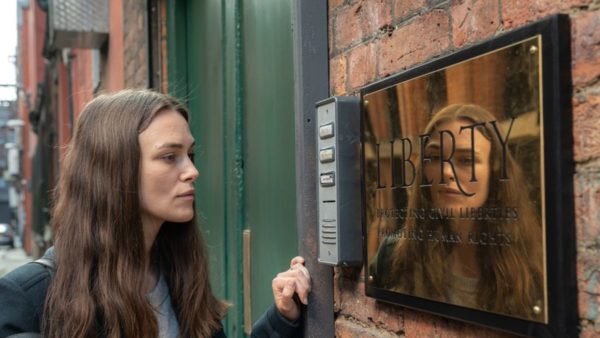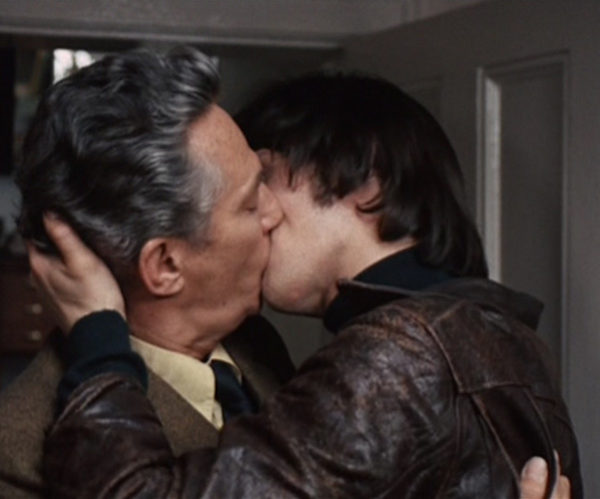Film Review: Report from the 2019 Provincetown Film Festival
By Gerald Peary
The P-Town Fest was the site of several first-rate documentaries.
When was the last time that the promo short advertising a film festival turns out to be a mini-masterpiece? That’s what happened at the 21st Provincetown Film Festival, June 12-16, because the great indie animator, Emily Hubley, was commissioned for the little film piece projected before every movie.
Do you know the zippy, campy, retro “Let’s All Go to the Lobby” urging you to the concession stand, and screened always at the Coolidge Corner? This 1953 work (Official Title: “Technicolor Refreshment Trailer No.1”) is reframed by Hubley, the tempo slowed down, a hip baritone singing the words, as Hubley’s magical creations (a big-beaked bird, a popcorn box, dancing candy) sashay across the screen on stork legs. Here’s old-school, hand-drawn animation in all its glory. So sublime!
The P-Town Fest was also the site of several first-rate documentaries. Julia Reichert and Steven Bognar’s American Factory casts a skeptical eye on US-China bonding celebrated as the paradigm of dynamic capitalism. This film follows several years in the evolving/devolving story of a failed Dayton, Ohio factory miraculously rescued by a Chinese billionaire, until, no surprise, it falters again. This porcine mogul, worshipped at home by his zealous, Orwellian employees, just can’t fathom what he condemns as American lackadaisical work ethics or, far worse, disgruntled employees wanting to start a union. Nothing like that would be tried under today’s Chinese communism! American Factory is a terrific left-wing labor film without need of a didactic voiceover, because what unfolds on screen tells effortlessly a classic saga of management hubris, of the 1 % gone globally awry.
Many years ago I was at an all-day rock concert of many known groups and, for some reason, the audience had little response for Linda Ronstadt and the Stone Ponies. The emcee came out and admonished the crowd for not appreciating such an incredible group. I remembered that while watching the superb Linda Ronstadt: the Sound of My Own Voice and hearing potent, stirring songs, one after another, from the mighty-voiced chanteuse. I am guilty: I have underrated her, taken her talents for granted. What a fabulous singer, who these days is felled by Parkinson’s. Which is why, alas, there are no more albums. Ronstadt is also, we learn, a deep thinker and a loyal, trusted friend to other women rockers. I’m happy to admit welling up when seeing footage of the extraordinary recording session with her pals Dolly Parton and Emmy Lou Harris that produced Trio, the legendary LP.
The Ronstadt documentary was one of two new films at Provincetown produced by the esteemed directing team of Rob Epstein and Jeffrey Friedman. All of us should be indebted for their pioneering non-fiction — through the decades they have told the story of gay America, including Word is Out and The Life and Times of Harvey Milk. Their second new work, State of Pride, is a collaboration with the charismatic YouTuber activist, Raymond Braun. The goal was to make sure that young queer people not take the importance of Gay Pride marches. for granted. The message is loud and clear when you see how isolated Alabamans, including transsexuals, find meaning and rare bonding from a Pride day in conservative Tuscaloosa. Here’s something special: State of Pride is available for free on YouTube. Watch it!

A scene featuring Keira Knightly in “Official Secrets.”
What did I see of fiction at P-Town 2019? Official Secrets, winner of the Audience Award, is a well-made, somewhat conventional political thriller based on the true-life travails of British whistleblower Katharine Gunn, who singlehandedly tried — and failed — to stop the War with Iraq from happening. Keira Knightly gives a fierce, disciplined performance as Gunn, and the movie gets points for being so unambiguously forthright in its politics: that George W. and his cronies deliberately lied about Saddam Hussein and weapons of mass destruction, and that Tony Blair was Bush’s toady going along with the deceits, and blessed by the British press.
You can’t get more overwrought than the films of Britain’s Danny Boyle from Trainspotting to Slumdog Millionaire to Yesterday, his newest and perhaps cheesiest work. In this fantasy, the world has a momentary breakdown and wakes up not having heard of the Beatles. Total amnesia, except for one young bloke, a Brit singer, who pretends he wrote all those songs. He becomes a superstar with his “original” repertoire, from “I Wanna Hold Your Hand” through “Sergeant Pepper.” Here’s the Velveeta: did he lose his soul along the way to fame? Did he abandon the Girl Back Home Who Loves Him? The final ten minutes are eye-popping in their shameless downpour of corn.
My fiction highlight was a special retrospective screening of John Schlesinger’s 1971 Sunday Bloody Sunday, which many consider the first mainstream film in which a gay man is totally guiltless about his homosexuality. He has not a moment of self-hate and certainly not a thought to suicide — not while he’s having such a randy good time sleeping both with Glenda Jackson and Peter Finch.

Murray Head kissing Peter Finch in 1971’s “Sunday Bloody Sunday.”
The P-Town screening was much spiced by the live commentary of photographer Michael Childers, who was the partner of Schlesinger, the late British filmmaker, for more than thirty years. He revealed that Finch was not the original choice for the character, but the “closeted” Ian Bannen, who froze during the first days of shooting because he was not able to deal with the open homosexuality. Childers also said that there were quarrels with the screenwriter, film critic Penelope Gilliatt, who wanted an early scene with the male leads embracing to be shown only in silhouette. “Two men kissing! How shocking!” Childers said, laughing about it. And he remains disturbed that Gilliatt claimed to have thought of the narrative. “How ridiculous!” Childers said. “Peter Finch was John Schlesinger. This was John’s own story!”
Including the Jewishness, with an extended scene in Sunday, Bloody Sunday at a Bar Mitzvah? Childers confirmed that Schlesinger came from a Jewish family and that he is actually buried in England in a Jewish cemetery. Childers recalled Schlesinger’s straight-laced father coming to the movie’s premiere and grumbling afterward to his son about it. “John, I didn’t mind that the Peter Finch character was gay. But why did you have to make the gay man Jewish?”
Gerald Peary is a Professor Emeritus at Suffolk University, Boston, curator of the Boston University Cinematheque, and the general editor of the “Conversations with Filmmakers” series from the University Press of Mississippi. A critic for the late Boston Phoenix, he is the author of nine books on cinema, writer-director of the documentaries For the Love of Movies: the Story of American Film Criticism and Archie’s Betty, and a featured actor in the 2013 independent narrative Computer Chess. He is currently at work co-directing with Amy Geller a feature documentary, The Rabbi Goes West.
Tagged: American Factory, Gerald Peary, Official Secrets, Provincetown Film Festival

